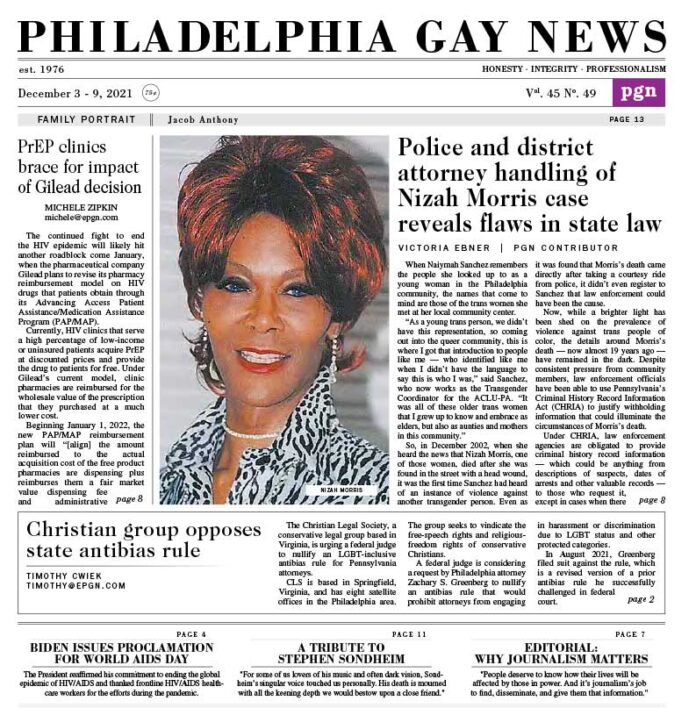The healthcare system in America, like much of the country, works well for some people and terribly for many others. And the system is often so confusing that most people don’t know exactly why it doesn’t work, but only that their prescriptions cost a lot or that the procedure they need is not covered. In a fair system where companies do what’s right and equitable, it’s okay for consumers to not know the intricacies of complicated issues like insurance billing and terms of service. But in the system we have, not knowing specific details about one’s healthcare plan could lead to ruin financially, physically, or both.
One health story that has been reported over the past few months is about pharmaceutical company Gilead changing one of its programs that reimburses clinics for its medications. You can read about it in this week’s PGN. Like many stories involving medicine, science, and insurance, it’s not easy to understand the terminology used or the intricacies of the programs in question. In fact, even after reading and rereading articles about the Gilead story in NBC News, the Bay Area Reporter, several blogs, and the legislation itself, I was still, unfortunately, confused about a few specific details of the story.
That confusion was why I asked one of our writers to do our own version of the story, one that would hopefully clear up some of the questions and confusion I had from other outlets’ articles. This is not a knock on those other publications nor the quality of their journalism. The medical field and medical insurance field are so confusing that even the most well versed writer or editor will sometimes find it hard to make sense of things. And in all honesty, sometimes it seems that the medical industry, and more specifically the medical insurance industry, would rather keep things confusing than for people to understand how the system works — or does not work — for them.
This endeavor reminded me of why journalism is vital to our society, especially when it comes to complicated issues that affect people’s lives and livelihoods. The more people understand policies that concern them — whether in medicine, law, business, education, politics, or any industry — the easier it is for them to make the best decisions for themselves. We are increasingly in an age where those in power and wealth try to unjustly hold on to that status at the expense of everyday people. But we’re also in an age where it’s easy to share information and to expose inequity.
A few decades ago, a publication like SCOTUSBlog (which provides analysis of the Supreme Court) would not have had much of a readership outside of select legal circles. Now they have over 500-thousand followers on Twitter. The reason that so many follow it now is because people realized the power that the Supreme Court has over their lives, and they want to learn exactly what the court is doing and how their lives will be affected.
In the case of the Gilead story in this week’s PGN, it’s the same thing. People deserve to know how their lives will be affected by those in power. And it’s journalism’s job to find, disseminate, and give them that information.
